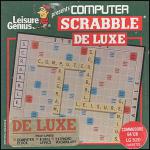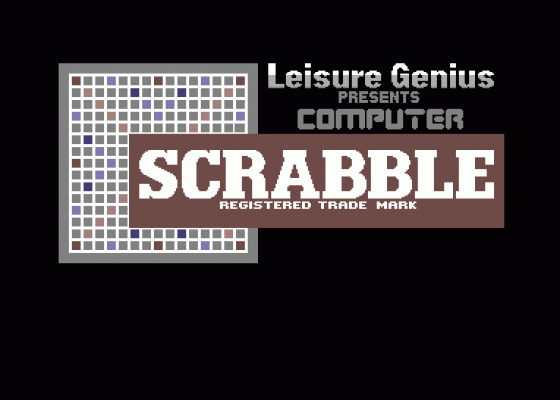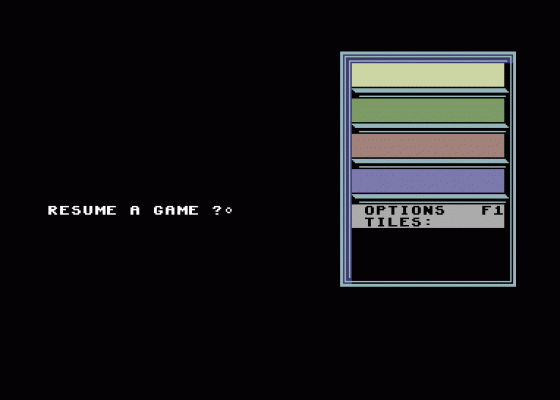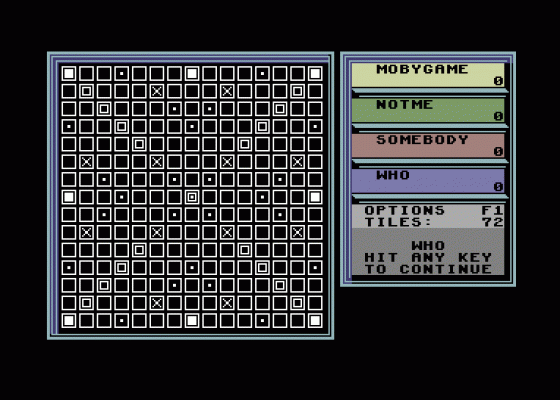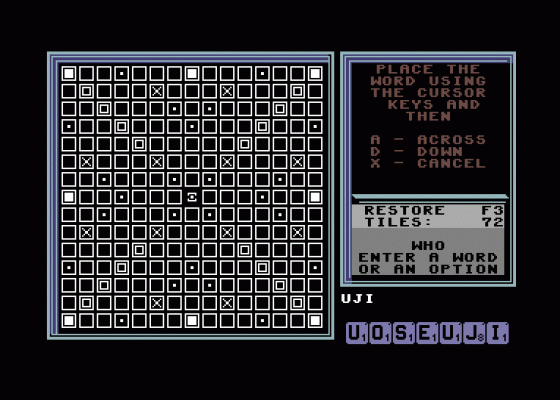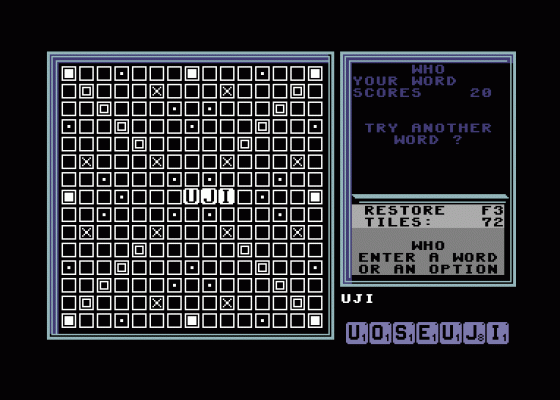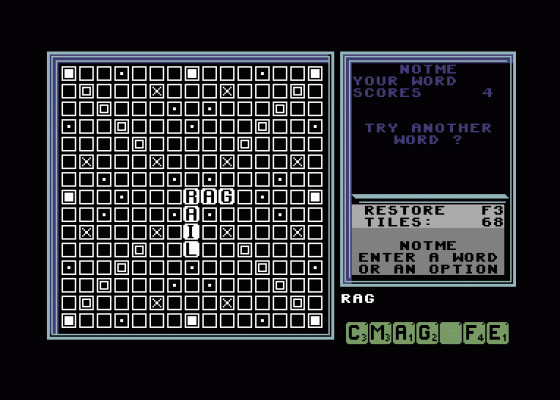
Zzap
 1st December 1987
1st December 1987
Categories: Review: Software
Publisher: Leisure Genius
Machine: Commodore 64
Published in Zzap #32
Computer Scrabble Deluxe
JW Spear's classic board game was first conceived in the late 1940's, and since then has appeared in many formats - Scrablle, Scrabble De Luxe, Travel Scrabble and Pocket Scrabble. Now the range is further expanded with a computer version of Scrabble De Luxe.
As expected, the game follows the rules of the board version. At the start, an options screen allows any combination of four human or computer opponents to be chosen. Computer players are individually set to one of eight levels. One to four have a limited vocabulary and are therefore more suitable for a novice. On levels five and eight the computer also responds with any of the acceptable two, three and four letter words and extensions found in Chambers' 20th Century Dictionary and Chambers' WORDS, the official Scrabble reference books. The entire vocabulary contains over 20,000 words - so prepare to see words that you never knew existed!
Each player is given seven letters, randomly apportioned from the standard set of 98 plus two blanks. A word is made and placed on the board in such a way that it fits in with one of the words already there. The seven letters forming the rack may be 'juggled' around, allowing the player to view the tiles in a random order. Placing the tiles is accomplished by typing in the full word and positioning a cursor on the board where the first letter is to be. Typing 'A' or 'D' places the word across the board or down accordingly. Unfortunately, the 'board' provided is displayed in monochrome rather than the normal beige with red and blue squares. While this forms no major drawback, it is a rather poor substitute for the real thing and becomes hard on the eyes after a heavy playing session.
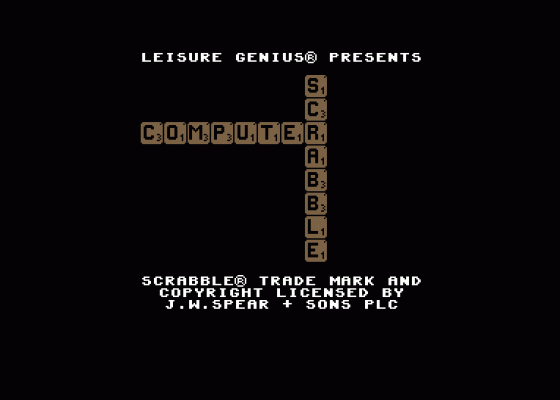
Once a word is positioned, the computer displays the score gained by its placement, taking into account any new words made and the premium squares the word falls on (double word and letter score, and triple word and letter score). A prompt asks if a new word is to be positioned, and if the score is adequate, a response of 'N' ends the turn, and the next player's rack is displayed.
As the computer's vocabulary is finite, it occasionally comes across a word during play that it does not recognise, and a challenge is issued. If it turns out that a player's word does not in fact exist, it is removed and the current turn forfeited.
The game continues in this fashion until either one player uses all of his tiles and no more remain, or neither player can place any more tiles. The computer then displays the final scores and asks if another game is to be played.
A feature of this version is a built-in clock which allows contestants to play against an adjustable timer. This can speed the game up tremendously and also adds the tension of being under pressure to finish a turn within a short period of time. The clock may be set from a lightning ten seconds to a more leisurely nine minutes and 59 seconds.
Aesthetic niggles apart, Scrabble De Luxe is about as good as one can expect from a home computer. It's easy to use, fast, and provides a brilliant opponent. There are plenty of options which also make the game user-friendly and adjustable to suit the human player. If you're a fan of the board game, but lack an opponent, Scrabble De Luxe is an almost essential purchase. Those who haven't played before should try it out - not only does it get the old grey matter clanking back into action, but also helps expand your vocabulary *and* is highly enjoyable. Scrabble De Luxe may be pricey, but you'll be playing it for years!

